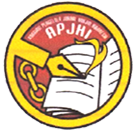Legal Protection For Breastfeeding Female Drug Concerts And The Children Of Prisoners (Study At Class Iii Women's Correctional Institution Mataram)
DOI:
https://doi.org/10.29303/ulrev.v8i1.309Keywords:
Legal Protection, Drug Convicts, Women Who Breastfeed, Mataram Women's PrisonAbstract
Perpetrators of criminal acts may be of any gender, as criminal behavior is not limited by gender. When offering protection and support to women who commit crimes, especially those who are breastfeeding, it is crucial to recognize the inherent differences between men and women. It is essential to consider the legislative policy regarding female drug convicts who breastfeed and the children of prisoners in correctional institutions, along with the practical implementation of this policy at the Mataram Class III Women's Correctional Institution. It is crucial to recognize the impact of a mother's presence and living conditions on a child's growth and development. Given the context, it is prudent for the author to conduct a comprehensive review of the imprisonment policy for women convicted of narcotics offenses, especially those who are breastfeeding, and the children of incarcerated individuals. The research methodology employed in this study is normative-empirical legal research, utilizing three distinct approaches: the statutory approach, the conceptual approach, and the sociological approach. The legislative policy regarding female drug convicts who are breastfeeding and the children of prisoners in Correctional Institutions is outlined in Article 9 and Article 62, Paragraphs (1), (2), and (4) of Law Number 22 of 2022 concerning Corrections. The implementation of policies concerning female drug convict mothers who are breastfeeding and their children at the Mataram Class III Women's Penitentiary refers to Law Number 22 of 2022 on Penitentiaries, Government Regulation Number 32 of 1999 concerning the Requirements and Procedures for Implementing the Rights of Inmates, and Law Number 23 of 2002 concerning Child Protection.
References
Daftar Pustaka
Burhan Ashshofa, 2013, Metode Penelitian Hukum, Rineka Cipta, Jakarta.
Rodliyah, 2011, Pembaharuan Hukum Pidana tentang Eksekusi Pidana Mati Perempuan Hamil Pokok-Pokok Pikiran Revisi Undang-undang Nomor 2/Pnps/1964, CV. Arti Bumi Intaran, Yogyakarta.
Soerjono Soekanto, 1998, Penelitian Hukum Normatif Suatu Tinjauan Singkat, Rajawali Press, Jakarta.
Suratman dan H. Phillips Dillah, 2012, Metode Penelitian Hukum, Alfa Beta, Bandung.
Internet:
Humas, Meski Berada Dalam Lapas, Hak Khusus WBP Perempuan Yang Hamil, Menyusui dan Membawa Anak Tetap Harus Dipenuhi, https://www.balitbangham.go.id/detailpost/meski-berada-dalam-lapas-hak-khusus-wbp-perempuan-yang-hamil-menyusui-dan-membawa-anak-tetap-harus-d, Diakses pada tanggal 14 August 2023.
Nirkomala, Lapas Perempuan Mataram Memberikan Keterampilan Bagi Warga Binaan, https://mataram.antaranews.com/berita/276417/lapas-perempuan-mataram-memberikan-keterampilan-bagi-warga-binaan?page=all, Diakses pada tanggal 13 September 2023.
NN, Sejarah Pemasyarakatan, https://lppmataram.kemenkumham.go.id/profil/tentang-satuan-kerja/sejarah-pemasyarakatan, Diakses pada tanggal 15 Agustus 2023.
Selayang Pandang Satuan Kerja, https://lppmataram.kemenkumham.go.id/profil/tentang-satuan-kerja/selayang-pandang-satuan-kerja, Diakses pada tanggal 15 Agustus 2023.
Tim Hukum online, Perbedaan Pasal 112 dan 114 UU Narkotika, https://www.hukumonline.com/berita/a/perbedaan-pasal-112-dan-114-uu-narkotika-lt62069dd88341d/?page=3, Diakses pada tanggal 29 Agustus 2023.
Peraturan Perundang-undangan:
Undang-Undang Dasar 1945
Undang-undang No 23 Tahun 2002 tentang Perlindungan Anak, Lembar Negara Tahun 2002 Nomor 109 Tambahan Lembar Negara Nomor 4235.
Undang-Undang Nomor 22 Tahun 2022 tentang Pemasyarakatan, Lembar Negara Tahun 2022 Nomor 165 Tambahan Lembar Negara Nomor 6811
Undang-Undang Nomor 35 Tahun 2009 tentang Narkotika Lembar Negara Tahun 2009 Nomor 143Tambahan Lembar Negara Nomor 5062
PP No. 32 Tahun 1999 tentang Syarat Dan Tata Cara Pelaksanaan Hak Warga Binaan Pemasyarakatan
PP 58 Tahun 1999 tentang Syarat-Syarat Dan Tata Cara Pelaksanaan Wewenang, Tugas Dan Tanggung Jawab Perawatan Tahanan.
Downloads
Published
How to Cite
Issue
Section
License
Copyright (c) 2024 Amiruddin, Rodliyah, Rina Khairani Pancaningrum

This work is licensed under a Creative Commons Attribution-NonCommercial 4.0 International License.
Copyright holder by Author














